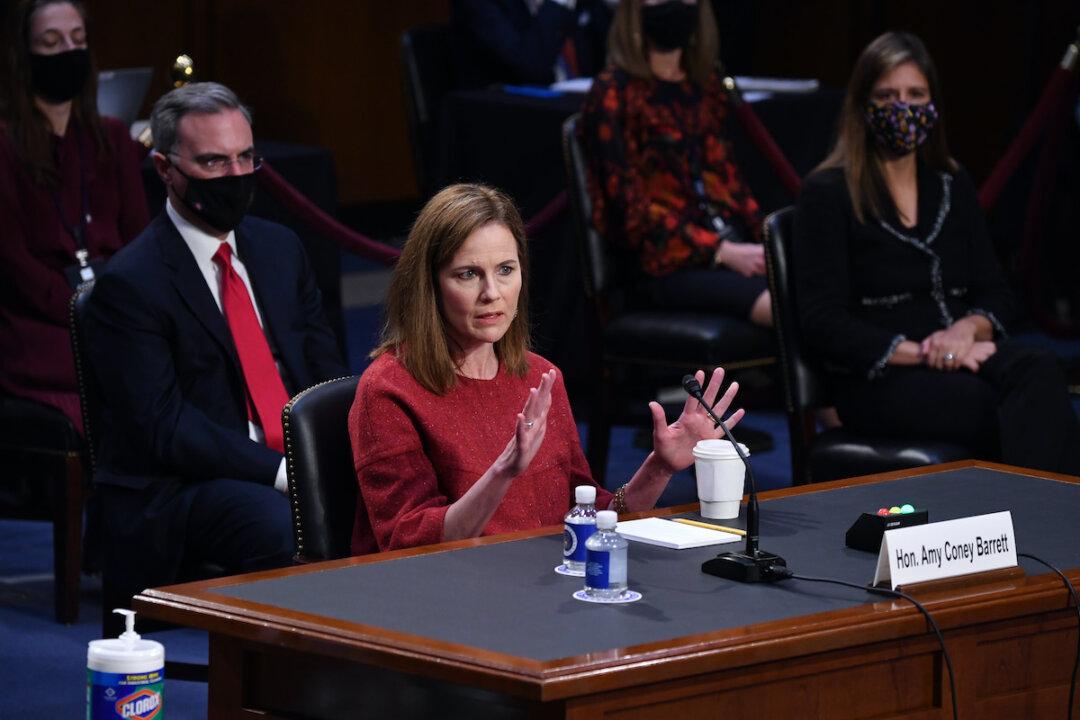Judge Amy Coney Barrett said on Tuesday that she did not have any conversations with or make any promises to President Donald Trump on how she would rule on a case involving the Affordable Care Act (ACA), also known as Obamacare, or on any potential 2020 presidential election disputes.
“I have had no conversations with the president or any of the staff on how I might rule in that case,” Barrett told Sen. Patrick Leahy (D-Vermont) on the second day of her confirmation hearing before the Senate Judiciary Committee. “It would be a gross violation of judicial independence for me to make any such commitment, or for me to be asked about that case and how I would rule.”




